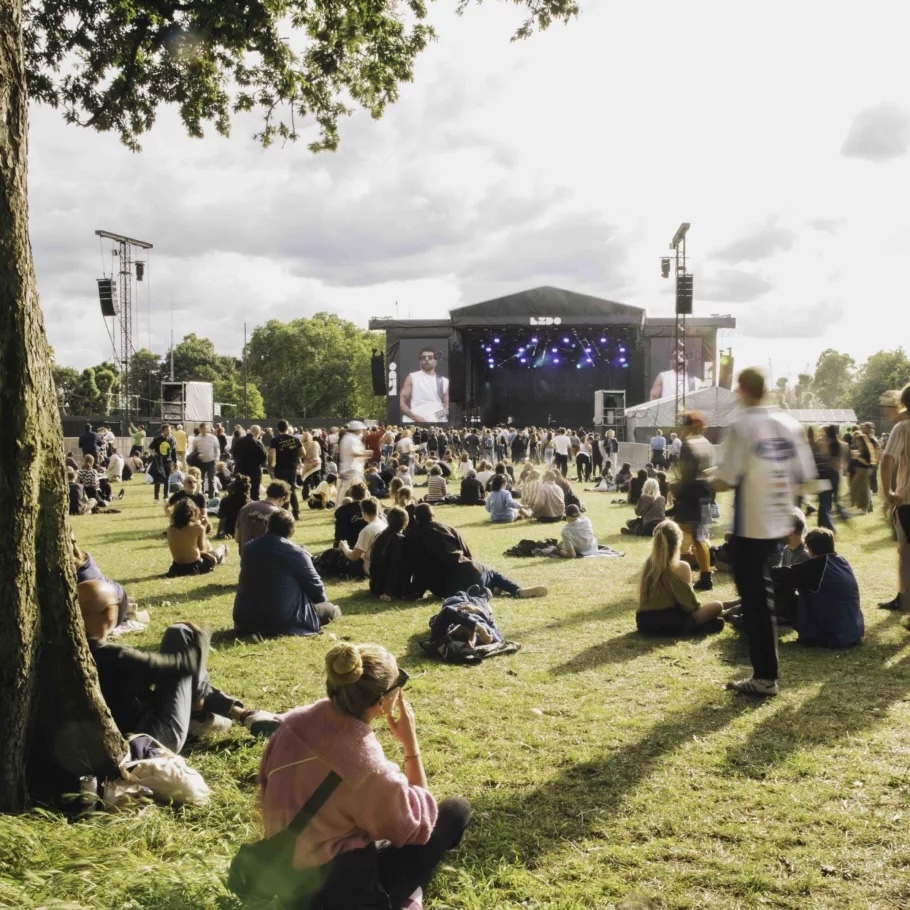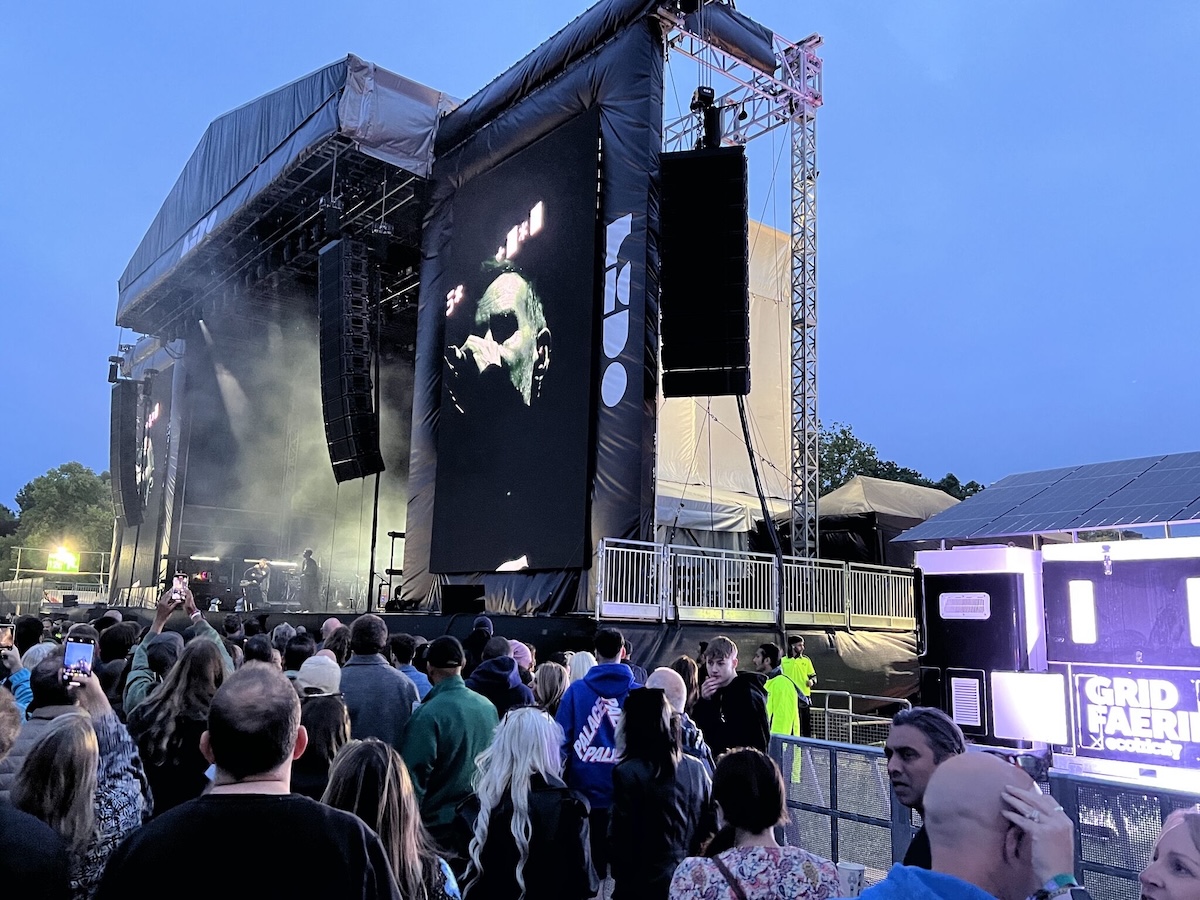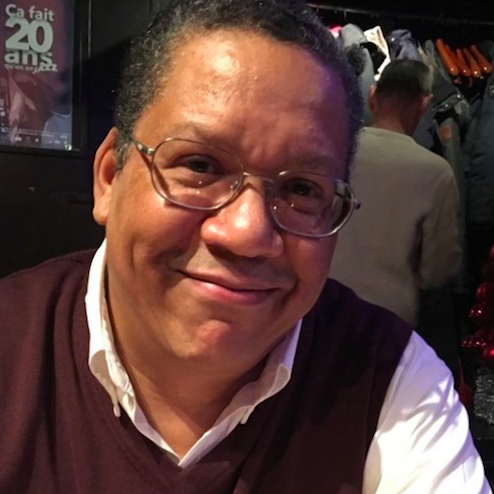
The nonprofit A Greener Future partnered with Grid Faeries x Ecotricity, a U.K. organization working to end the use of diesel on the country’s festival circuit, to power Massive Attack’s headlining performance at LIDO entirely with batteries. (Image: Dale Vince/Grid Faeries x Ecotricity)
The LIDO Festival isn’t just another summer concert. Held in London’s Victoria Park last month, it was planned as a blueprint for how big events can be environmentally responsible while delivering for fans.
The festival featured performances by Charli XCX, London Grammar, Massive Attack, Jamie xx and others. Behind the scenes, organizer AEG Europe looked to reimagine every aspect of festival operations with an eye toward sustainability first.
“We wanted to prove that sustainability doesn’t need to compromise the live music experience. In fact, it can improve it,” said Sam Booth, director of sustainability for AEG Europe. “When you create a new brand, it needs a distinct identity. Sustainability was always meant to be one of the festival's core pillars — not just as a value, but as something that enhances the experience.”
It’s a bold vision with buy-in from the top. “We want to offer the very best in all aspects of our events,” said Jim King, CEO of European Festival for AEG Presents. “This includes setting new standards for sustainability. It is not only a statement about the future direction of live music, but a practical one too. We want our fans to have a great time, which is only enhanced by these sustainability measures.”

The festival included every successful sustainability initiative the global sporting and live entertainment company AEG has trialed at festivals over recent years and aimed to take them a step further.
English trip-hop pioneer Massive Attack’s headlining performance at LIDO marked a major milestone: a large live music event powered entirely by batteries.
Replacing the diesel generators that typically power live stages with batteries didn’t just reduce the event’s carbon footprint. It also created a more comfortable show with less smell, air pollution and background noise. Some say the beats sounded better, too.
“The sound system company told us the bass drops were actually cleaner and more responsive with battery power,” said Claire O’Neill, co-founder of the nonprofit A Greener Future, which consults with events, festivals and venues to reduce their environmental impact. “It was comparable to permanent venue power — no droning generators, no diesel fumes. Just music.”
A Greener Future partnered with Grid Faeries x Ecotricity, a U.K. organization working to end the use of diesel on the country’s festival circuit, to deploy a battery system for LIDO’s main stage. Batteries arrived fully charged with three megawatt-hours of electricity sourced from renewables, with solar panels on the festival grounds providing additional power as needed, O’Neill said.
LIDO’s success with battery power proves what’s possible, and also highlights an often-overlooked issue: overestimating energy needs. “When artists or food vendors request more power than they use, it limits our ability to optimize with batteries,” O’Neill explained. “We need more education around right-sizing power needs.”
Booth said he and AEG Europe can’t wait to share these and other lessons learned. “There’s no point in doing all this work and keeping it to ourselves,” he told us. “If we can show that batteries work in temporary outdoor settings, that can influence not just the event industry, but also film sets, construction sites and more.”
The data A Greener Future gathered from power providers, food vendors and waste teams at LIDO will also inform other music festivals in London, such as BST Hyde Park and All Points East, which gather tens of thousands of fans to the city’s outdoor venues.
Some of LIDO’s most radical changes were also the most visible, Booth said, calling out the new experience at beverage vendors as an example.
“We limited front-of-house waste streams to compostables and cans — no confusing signage or overflowing bins,” he said. “It improves bar speed, too. Cans are faster to serve and keep drinks cooler.”
The back-of-house setup included a conveyor for sorting dry mixed recycling, a can compactor, and a dedicated compostables bin. “Seeing cubes of compressed cans really motivated people to sort properly. It turned waste into something valuable,” O’Neill said.
Fans also embraced more sustainable ways to stay fed during the festival. Homegrown headliner Massive Attack is known for serving plant-based meals at concerts and requested an all-vegetarian site for their featured day at LIDO. “The fan response was great — long lines, positive feedback,” Booth said. “That’s something we’ll build on.”
The warm reception is great news for the planet as well as hungry concert-goers. “Food and drink are usually the second-biggest source of emissions after transport,” O’Neill said. “By offering plant-based menus, we significantly reduced the festival’s footprint.”
To support this shift, LIDO used eco menu labels rating dishes from A to E based on their environmental impact. Looking ahead, O’Neill said A Greener Future hopes vendors will only offer A- or B-rated items.

While hosting a large event in the heart of London brings both challenges and opportunities, Booth sees local engagement as central to the festival’s identity. “Fan travel accounts for 70 to 90 percent of an event’s carbon footprint,” he said. “By hosting in Central London — with no parking and great public transport — we minimize that.”
Equally important is being a good neighbor, he added. “The midweek events are free and inclusive, with activities for schools and locals. It’s about building trust and making sure people feel part of the festival, not disrupted by it.”
Because of the uncompromising focus on circularity, clean energy, plant-based food and transparent data collection, Booth sees LIDO as a model for what the future of live entertainment can look like.
“What we’re trying to do is prove that festivals can be joyful experiences without the guilt,” he said. “Removing diesel generators, offering better food, cleaner facilities — these make festivals better for everyone. And hopefully, people carry that awareness home with them.”
O’Neill is similarly encouraged by the future of sustainability at live events that are just as fun for fans. “It’s not about sacrifice,” she said. “It’s about showing that sustainable choices can also be enjoyable and satisfying.”
This article series is sponsored by AEG and produced by the TriplePundit editorial team.

Gary E. Frank is a writer with more than 30 years of experience encompassing journalism, marketing, media relations, speech writing, university communications and corporate communications.














